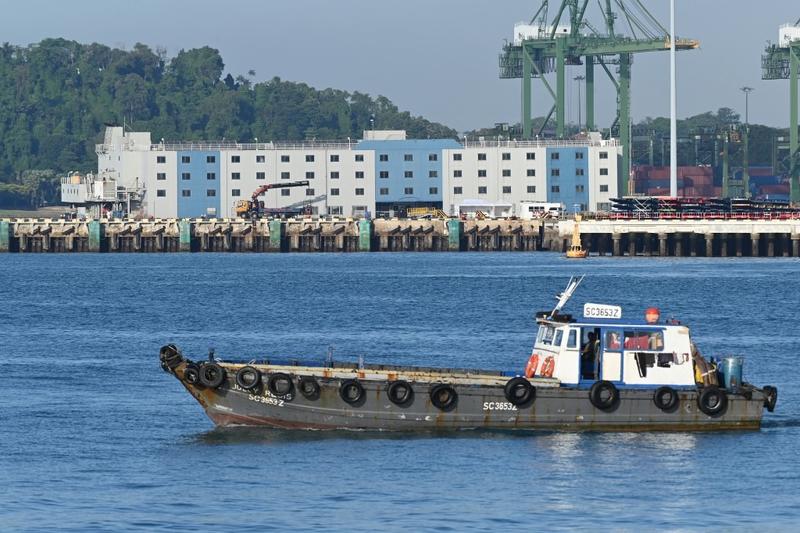 A floating accomodation facility, which will be used as temporary housing for healthy foreign workers as a preventive measure against the spread of the COVID-19 novel coronavirus, is docked at Tanjong Pagar terminal port in Singapore on April 12, 2020. Thousands of migrant workers are being moved out of crowded dormitories in Singapore after a surge in new coronavirus cases linked to the sites, authorities said on April 9. (ROSLAN RAHMAN / AFP)
A floating accomodation facility, which will be used as temporary housing for healthy foreign workers as a preventive measure against the spread of the COVID-19 novel coronavirus, is docked at Tanjong Pagar terminal port in Singapore on April 12, 2020. Thousands of migrant workers are being moved out of crowded dormitories in Singapore after a surge in new coronavirus cases linked to the sites, authorities said on April 9. (ROSLAN RAHMAN / AFP)
SINGAPORE - Singapore is preparing to house hundreds of foreign workers in accommodation vessels typically used for offshore and marine industry staff as it races to find alternatives to dormitories where the novel coronavirus has been spreading rapidly.
Tens of thousands of migrant workers, many from South Asia, live in cramped dormitories across Singapore, which have become the biggest source of coronavirus infections in recent days
Tens of thousands of migrant workers, many from South Asia, live in cramped dormitories across Singapore, which have become the biggest source of coronavirus infections in recent days.
Authorities are moving some of the healthy residents of those facilities to other sites including military camps, an exhibition centre, vacant public housing blocks and the accommodation vessels, which they have called “floating hotels”.
ALSO READ: S'pore stricter on enforcement to curb spread of virus
“Each facility can hold a few hundred occupants and can be suitably organised to achieve safe distancing,” Minister of Transport Khaw Boon Wan said in a Facebook post on Sunday after he visited one of the vessels.
They are docked in a restricted area in a port terminal, Khaw said.
The Maritime and Port Authority of Singapore said it was working with terminal operator PSA Singapore, Keppel Corp’s rig-building unit, floating accommodation barge provider Bibby Maritime Ltd and serviced apartment operator The Ascott Ltd to bring in and manage two floating accommodations.
READ MORE: Singapore rises to the challenge


